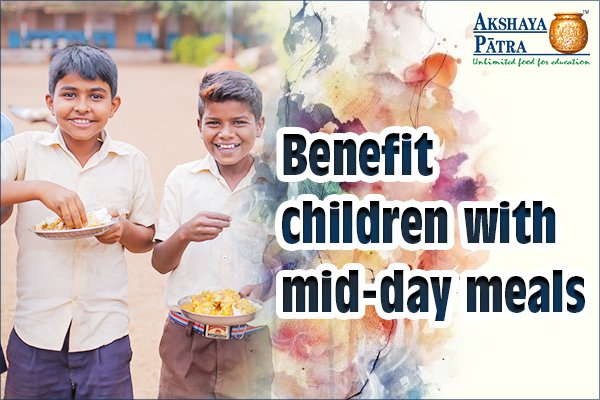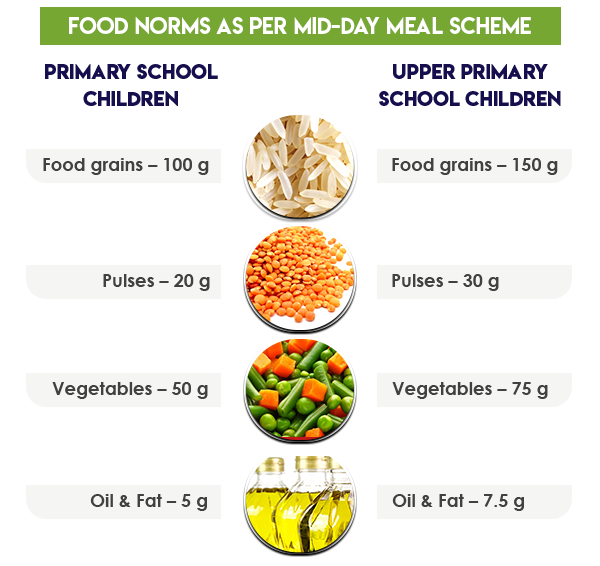The Mid-Day Meal Scheme is the world’s largest feeding programme with a feeding number of 120,000,000 children in over 1,265,000 schools. Despite the number of children that go to school, the United Nations evaluates that four out of ten children in India do not meet their full human ability because of chronic lack of nutrition. Mid-day meals were introduced to protect nutritional rights of children.

The Journey of the Mid-Day Meal Programme
• The concept of mid-day meals was first introduced in India in 1925.
• In August 1995, a national scheme was launched to provide one meal a day to all the students in Primary Schools.
• In November 2001, the Supreme Court mandated that all the public schools should feed their children with noon meals.
• In 2007, the MDM Scheme was extended to children studying in classes 6-8 along with the primary school children.
As per the guidelines provided by the Ministry of Human Resource Development, children studying in classes 1-4 should get 450 calories per day and 12 grams protein, while children in upper primary should get 700 calories including 20 grams protein. A few states like Andhra Pradesh, Karnataka, Telangana, Kerala, Tamil Nadu and Puducherry have extended this scheme to classes 9 and 10 as well.
11.98 Crore children are enrolled in Primary and Upper Primary Schools, out of which, 76.56% were beneficiaries of the Mid-Day Meal Programme. (Source: NDTV, SwasthIndia 2019)

Keeping in mind the above nutritional requirements, The Akshaya Patra Foundation feeds the children studying in Government and Government-assisted schools with healthy and nutritious meals since 2000. It implements the Mid-Day Meal Programme to feed 18,00,907 children studying in 19,039 schools. The Foundation prepares fresh meals on a daily basis from its 52 kitchens spread across 12 States and 2 Union Territories of India.
What is the importance of Mid-day meals for children?
• Nutritious mid-day meals serve as an incentive for children to come to school every day. It increases the attendance rates, school enrolment rates and retention rates of children in Government and Government-aided schools. Since it is the first meal for most of the children hailing from challenging socio-economic backgrounds, school meals come as a relief for parents who send their children to school only because they are assured of one proper meal daily.
• Hunger affects concentration levels and hinders our ability to focus on the task at hand. Mid-day meals address classroom hunger which paves way for better attention and concentration span in class. In the long-run, it improves children’s health and nutritional status thereby resulting in better cognition. Due to this long-term intervention, children become better at decision-making and develop problem solving capacities.
• Access to healthy meals make them less prone to infections and diseases. This reduces absenteeism in children thereby increasing their chances at completing education.
The Akshaya Patra Foundation has relentlessly been working to feed children all over India since the last 20 years. Your support to feed the children in India will help in reaching out to more children in need. With the belief that ‘no child in India shall be deprived of education because of hunger,’ the Foundation aims to feed 5 million children by 2025.
Support Akshaya Patra to feed the children in India.
Author Profile:
The Akshaya Patra Foundation is an Indian charitable trust implementing the Mid-Day Meal Programme. Currently, the NGO provides free, unlimited food for education to 1.8 million children studying in 19,039 Government and Government-assisted schools across 12 States and 2 Union Territories of India.